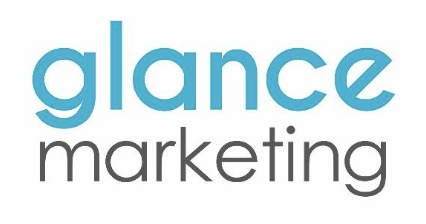Strategic Marketing Goal Setting for B2B Excellence: A SMART Approach
Setting strategic marketing goals is not merely a task to check off a list; it's a compass guiding the marketing team to lead B2B companies toward excellence. However, setting vague or unrealistic marketing goals can lead to wasted resources and missed opportunities. This is where the SMART approach comes into play.
The SMART framework is an effective marketing strategy for creating more specific and attainable goals. It breaks down larger, more daunting aspirations into smaller, manageable steps, that help the marketing team remain motivated and focused. Additionally, SMART goals provide clear benchmarks against which marketing teams can measure their progress and ensure every effort is aligned with the company's ultimate goal.
Understanding SMART Goals for B2B Marketing
The SMART framework stands for Specific, Measurable, Achievable, Relevant, and Time-bound. Each element plays a crucial role in crafting marketing goals that are clear, actionable, and aligned with the overarching vision of B2B companies.
Specific: Marketing goals should be unambiguous and detailed. They should answer the questions of who, what, where, when, and why. Vague objectives like "increase brand awareness" lack specificity, while a specific goal would be "increase brand awareness by 20% among manufacturing sector clients within six months through targeted content marketing."
Measurable: Measurability is essential for tracking progress and determining success. Goals should include quantifiable metrics or milestones that indicate progress. For example, instead of stating "improve lead generation," a measurable goal would be "generate 200 qualified leads per month through LinkedIn campaigns."
Achievable: While ambition is commendable, goals must also be realistic. Setting unattainable targets can demotivate employees and lead to frustration. An achievable goal is challenging yet within reach, given the available resources and constraints. For instance, "increase website traffic by 30% in the next quarter through SEO improvements" is more realistic than a vague aim to "double website traffic overnight."
Relevant: Goals should align with the broader objectives and priorities of the B2B companies. They should contribute directly to the company's mission and vision, ensuring that efforts focus on activities that matter most in driving business success. For example, a relevant goal for a B2B company might be "enhance product marketing to support the launch of our new software platform aimed at mid-sized enterprises."
Time-bound: Setting deadlines creates a sense of urgency and helps prioritize tasks. Goals should have clearly defined timelines or deadlines to provide a sense of direction and urgency. Without a timeframe, objectives may linger indefinitely, hindering progress. A time-bound goal, such as "launch the new email marketing campaign by the end of Q3," helps ensure timely execution.
Applying SMART Goals in B2B Marketing to Drive Excellence
Now that we understand the components of SMART goals, let's explore how they can be applied in B2B marketing contexts to drive excellence.
Specific: B2B marketing often involves complex environments with multiple stakeholders. Specific goals help align efforts and resources toward common objectives. For example, a specific goal for a B2B marketing team could be to "increase the number of marketing-qualified leads by 25% in the next fiscal year through targeted email campaigns."
Measurable: Success in B2B marketing is often measured by metrics such as lead generation, conversion rates, and customer engagement. Measurable goals enable organizations to track progress and make data-driven decisions. For instance, a measurable goal for a B2B marketing campaign could be to "increase webinar attendance by 40% over the next six months."
Achievable: B2B marketers must set goals that balance ambition with feasibility. Considering factors such as market conditions, competition, and available resources is crucial. An achievable goal for a B2B marketing team might be to "boost social media engagement by 20% through a new content strategy and regular posting schedule."
Relevant: In the B2B space, marketing goals should align with the unique needs and challenges of business customers. Whether it's improving brand visibility, generating high-quality leads, or enhancing customer retention, goals must address pain points and add value for clients. For example, a relevant goal for a B2B marketing team might be to "develop a content marketing strategy that positions the company as a thought leader in the industry, leading to a 15% increase in inbound inquiries."
Time-bound: B2B marketing initiatives often need to align with specific timelines, such as product launch dates or trade show schedules. Time-bound goals ensure that marketing efforts are executed in a timely manner, maximizing opportunities and minimizing delays. For instance, a time-bound goal for a B2B consulting firm could be to "launch a new service offering within six months to capitalize on emerging market trends and generate a 10% increase in revenue within the first year."
Embracing the SMART framework is not just about setting goals; it's about setting the right goals that lead to tangible, impactful outcomes. This structured approach not only optimizes resource use but also aligns marketing initiatives with the broader objectives of the company, ultimately propelling B2B businesses toward sustained growth and success.
Want to see how SMART marketing goals can transform your company outcomes? Reach out to Glance Marketing now and let's craft a strategy tailored to your business needs. Contact Now!
